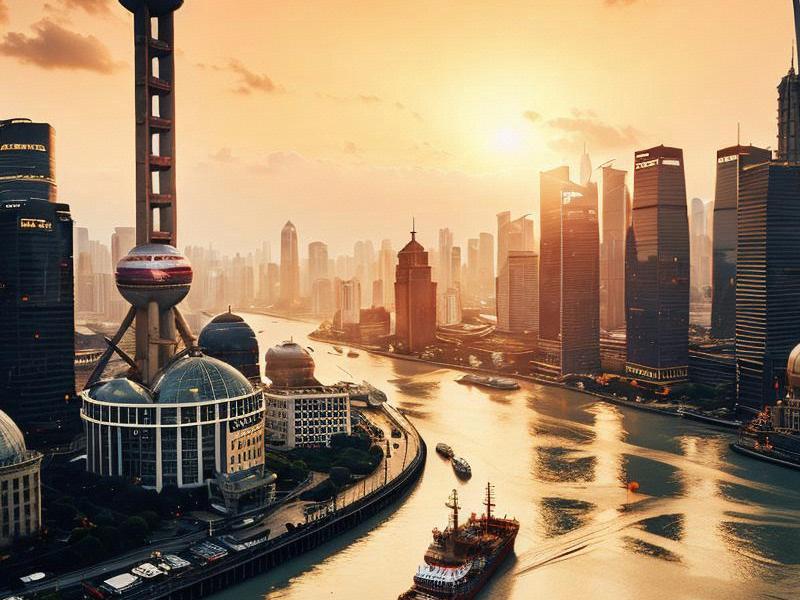
Shanghai, often referred to as the "Pearl of the Orient," stands as a beacon of China's rapid economic and social transformation. Over the past few decades, this historic port city has undergone a remarkable metamorphosis, emerging as one of the world's most dynamic and influential global metropolises. From its bustling financial districts to its vibrant cultural scene, Shanghai's story is one of resilience, innovation, and adaptation in an ever-changing world.
The journey of Shanghai began in earnest with the opening of its port to foreign trade in the mid-19th century. This pivotal moment marked the beginning of Shanghai's integration into the global economy, setting the stage for its subsequent rise. The city quickly became a hub for commerce and culture, attracting merchants, missionaries, and adventurers from around the world. This cosmopolitan legacy is still evident today in Shanghai's diverse neighborhoods and its reputation as a melting pot of cultures.
In the latter half of the 20th century, Shanghai experienced significant economic reforms that propelled it to the forefront of China's modernization efforts. The establishment of the Pudong New Area in the 1990s was a transformative move, turning a former rural area into a sprawling urban expanse of skyscrapers, financial institutions, and high-tech industries. Pudong's success story is emblematic of Shanghai's ability to reinvent itself, leveraging its strategic location and policy initiatives to attract domestic and foreign investment.
One of the most striking aspects of Shanghai's transformation is its economic innovation. The city has become a global leader in finance, trade, and technology, with the Shanghai Stock Exchange ranking among the largest in the world. The city's financial district, known as Lujiazui, is home to some of the tallest buildings in China and a testament to Shanghai's ambition to become a global financial hub. In addition to finance, Shanghai has also emerged as a center for innovation in industries such as information technology, biotechnology, and green energy.
爱上海同城对对碰交友论坛 Urban development in Shanghai is characterized by its ambitious infrastructure projects and sustainable urban planning. The city has invested heavily in public transportation, with its extensive metro system connecting residents and visitors to all corners of the city. The Maglev train, which connects Pudong International Airport to the city center, is a showcase of Shanghai's commitment to cutting-edge transportation technology. Furthermore, Shanghai has embraced green initiatives, aiming to reduce its carbon footprint and enhance the quality of life for its residents. The city's efforts include the development of eco-friendly buildings, the expansion of urban green spaces, and the promotion of public transportation.
Cultural diversity is another defining feature of Shanghai. The city's history as a gateway to the world has left an indelible mark on its cultural landscape. From the French Concession's charming cobblestone streets to the futuristic architecture of the Bund, Shanghai offers a rich tapestry of historical and contemporary influences. The city's cultural scene is vibrant and multifaceted, with world-class museums, theaters, and art galleries showcasing both traditional Chinese art and international contemporary works.
Shanghai's culinary scene is a reflection of its cultural diversity, offering a wide array of flavors and cuisines. From the famous xiaolongbao (soup dumplings) to the sophisticated French and Italian fare found in its many restaurants, Shanghai's dining experiences cater to a global palate. The city's night markets and food streets are also popular destinations, where visitors can sample a variety of street food and experience the lively atmosphere of Shanghai's culinary culture.
上海龙凤419贵族 Education is another area where Shanghai has made significant strides. The city is home to some of China's most prestigious universities and research institutions, attracting students and scholars from around the world. Shanghai Jiao Tong University and Fudan University are among the top-ranked institutions in China, contributing to the city's reputation as a hub for academic excellence and innovation.
Despite its rapid development, Shanghai remains committed to preserving its historical heritage. The city has taken steps to protect its historic buildings and neighborhoods, ensuring that they coexist with modern developments. The Yu Garden, a classical Chinese garden built in the Ming Dynasty, and the Old Town, with its narrow alleys and traditional architecture, are examples of how Shanghai balances its rich history with its modern aspirations.
Shanghai's transformation is not without challenges. The city faces issues such as urban sprawl, environmental concerns, and social inequality. However, its proactive approach to urban planning and sustainable development demonstrates its commitment to addressing these challenges. The city's leadership has implemented policies to promote affordable housing, improve public services, and enhance the quality of life for all residents.
上海贵族宝贝龙凤楼 In the context of globalization, Shanghai's role as a global metropolis is becoming increasingly significant. The city is actively engaged in international cooperation and exchanges, serving as a bridge between China and the rest of the world. Its strategic location and economic prowess make it a key player in global trade, finance, and cultural exchange.
Shanghai's story is one of continuous evolution and adaptation. As the city looks to the future, it remains focused on innovation, sustainability, and inclusivity. Its ability to balance tradition with modernity, and to embrace diversity while maintaining a strong sense of identity, is a testament to its resilience and ambition.
In conclusion, Shanghai's transformation from a historic port city to a global metropolis is a remarkable achievement that reflects China's broader development narrative. The city's economic innovations, urban development strategies, and cultural diversity make it a model for other cities around the world. As Shanghai continues to shape and be shaped by the forces of globalization, its story serves as an inspiration for cities seeking to navigate the complexities of modernization in an interconnected world.
